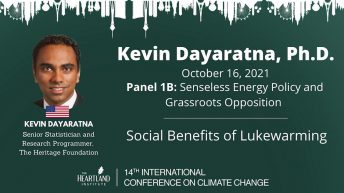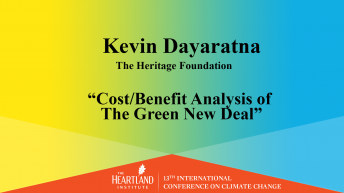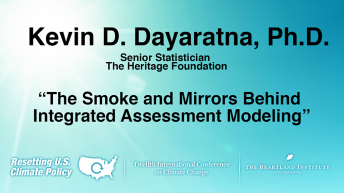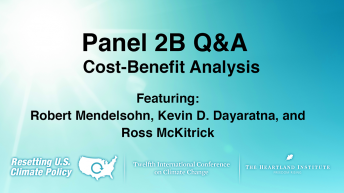Kevin Dayaratna

Kevin D. Dayaratna is Senior Statistician and Research Programmer in The Heritage Foundation’s Center for Data Analysis (CDA). An applied statistician, he has researched and published on the use of high-powered statistical models in public policy, medical outcomes, business, economics, and even professional sports.
Dayaratna, who joined CDA in September 2012, previously was a graduate fellow in Heritage’s Center for Health Policy Studies. His fellowship paper, on comparing outcomes for Medicaid patients with those for the privately insured, was cited by the American Medical Association, the National Center for Policy Analysis, and the Galen Institute, among other groups.
Dayaratna is part of the CDA team that maintains scores of databases and statistical models to support policy research; provides confidential reviews of legislation for members of Congress and the White House; and supplies data and analysis for news organizations. Census Bureau, Internal Revenue Service, Social Security, Medicare and Department of Education are only a few of the agencies and programs included in the databases.
At CDA, Dayaratna instituted the Heritage Energy Model, derived from the Energy Information Administration’s National Energy Modeling System, to quantify and help policymakers understand the long-term economic effects of energy policy proposals. He has also published extensive research on integrated assessment modeling regarding the social cost of carbon, methane, and nitrous oxide. In addition to energy modeling, has Dayaratna also works on statistical modeling regarding important climate, tax, labor, health care, welfare, and entitlement policy questions.
Dayaratna grew up in Princeton Junction, N.J. He did his undergraduate work at the University of California, Berkeley, majoring in applied mathematics with a specialty in mathematical physics. He also holds two masters degrees from the University of Maryland, one in business and management and the other in mathematical statistics. In 2014, Dayaratna completed his Ph.D. in mathematical statistics from the University of Maryland with specialties in Bayesian modeling and statistical computing. His doctoral dissertation was titled “Contributions to Bayesian Statistical Modeling in Public Policy Research.”





